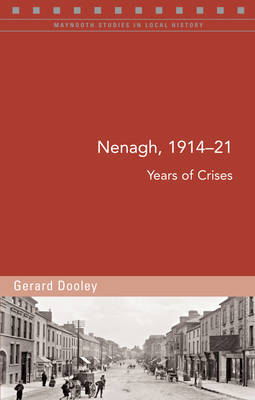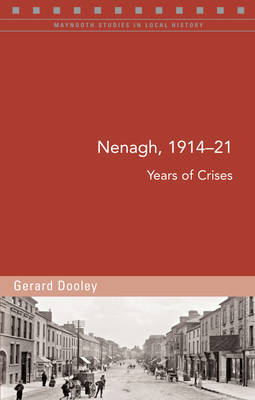
- Afhalen na 1 uur in een winkel met voorraad
- Gratis thuislevering in België vanaf € 30
- Ruim aanbod met 7 miljoen producten
- Afhalen na 1 uur in een winkel met voorraad
- Gratis thuislevering in België vanaf € 30
- Ruim aanbod met 7 miljoen producten
Zoeken
Omschrijving
This book looks at Irish life in Nenagh during the tumultuous period of 1914 to 1921. It examines the rise of the National Volunteers in Nenagh and their collapse, exploring the evolution of the organization that arose from the ashes of the National Volunteers to become the Irish Republican Army (IRA). Issues of dissension, disunity, and deception among the IRA are analyzed as a counterpoint to the more usual accounts of Flying Columns and ambushes. The transformation of the Royal Irish Constabulary (RIC) from a demoralized force, disenchanted and badly paid, to a dangerous hybrid of gendarmerie, civil police, and demobilized Great War Veterans is also discussed. Aside from the people who took up arms, either at home or abroad, the book considers those left behind, those who struggled to cope, those who faced the brunt of RIC reprisals, those who nearly perished due to crop failure, and those afflicted with Spanish Flu. In particular, the book considers the often overlooked social problems faced by the ordinary poor during the years of the Great War. (Series: Maynooth Studies in Local History) [Subject: History, Irish Studies]
Specificaties
Betrokkenen
- Auteur(s):
- Uitgeverij:
Inhoud
- Aantal bladzijden:
- 76
- Taal:
- Engels
- Reeks:
Eigenschappen
- Productcode (EAN):
- 9781846825774
- Verschijningsdatum:
- 18/12/2015
- Uitvoering:
- Paperback
- Formaat:
- Trade paperback (VS)
- Afmetingen:
- 135 mm x 211 mm
- Gewicht:
- 113 g

Alleen bij Standaard Boekhandel
+ 27 punten op je klantenkaart van Standaard Boekhandel
Beoordelingen
We publiceren alleen reviews die voldoen aan de voorwaarden voor reviews. Bekijk onze voorwaarden voor reviews.











